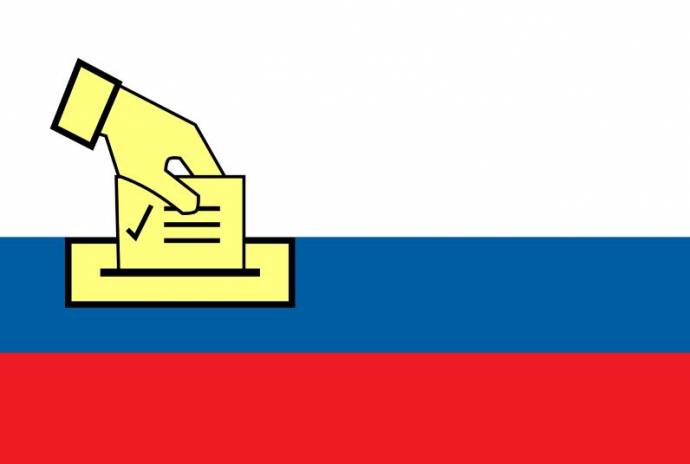STA, 16 November 2018 - Slovenian voters will flock to the polls on Sunday to cast their vote in local elections in 212 municipalities after month-long campaigning that saw some low points and bizarre publicity stunts.
A total of 688 candidates are running for mayors and 22,313 candidates for 3,400 local council seats, while some larger municipalities will also hold elections to borough or village councils.
As the trends suggest, incumbents and independents are likely to be the biggest election winners, even in some of the largest cities. Moreover, 36 mayoral candidates stand uncontested.
Mayors have long come to realise that voters appreciate most what they see, so they tend to time new construction and renovation projects for the ribbon-cutting to coincide with the campaign.
Indeed, a survey by the NGO Transparency International showed that local budgets peak with investments in election years; this year such spike is roughly EUR 420m or the equivalent of almost 1% of GDP.
Easy win in Ljubljana, harder fight in Maribor
In the eleven urban municipalities 87 contenders are running for mayors, with several of the incumbents projected to be re-elected, including Zoran Janković, who is eyeing his fourth term in Ljubljana.
Judging by the number of candidates and the few polls available, the fiercest battle will be fought in Maribor, where the incumbent mayor Andrej Fištravec is projected to be voted out.
The favourite for the first run is Franc Kangler, the former mayor who was forced out of office amid mass protests in 2012, but he is projected to be defeated by a newcomer, businessman Saša Arsenovič, in the run-off on 2 December.
Slovenia's second city saw aggressive smear campaigns on social media and an explicit death threat to one of the 18 candidates. Moreover, one of the contenders is running from prison.
Maribor and dead cats awaiting the incumbent in one of the smaller municipalities aside, perhaps the lowest point in the campaign was the interference in the village of Komen which cost Cohesion Minister Marko Bandelli his job after he threatened to cut off the municipality if his favourite was not elected.
Meanwhile, the campaign in Ljubljana was civilised, focusing on the battle between Janković and his long-term adversary in the city council, Anže Logar from the Democratic Party (SDS).
The incumbent in the port city of Koper, Boris Popovič, who has reportedly already organised a big party to celebrate a fifth term, tested the patience of voters with ostentatious early Christmas decoration that cost the city half a million euro.
The incumbents are also projected to be re-elected in Celje, Novo Mesto and Murska Sobota, while Kranj in the north-west will definitely get a new mayor because the incumbent is not standing.
The front-runner in Kranj is Matjaž Rakovec, the former boss of insurer Zavarovalnica Triglav, but polls indicate that a run-off on 2 December is likely.
A second run will not be needed in Murska Sobota, the north-easternmost urban centre, and in 59 more municipalities where only two candidates are standing.
Agitated in some of the municipalities and lacklustre elsewhere, the campaign did not venture beyond local issues and the results are likely to be a poor barometer of the political climate in the nation.
Very few female candidates on ballots
Aside the fact that scandals and allegations of corruption matter less than the candidates' ostensible efficiency, one of the things that is typical country-wide is the under-representation of women.
Only about one out of six mayoral candidates running is a woman, and there are none in Ljubljana. Out of the 212 mayors serving now only 16 are women and their number is likely to fall further.
More than 1.7 million voters are eligible to vote in Sunday's election. No projections about the turnout are available, but even as the trend has been negative, data from electoral commissions in urban municipalities show that more people turned out for early voting this year than four years ago.
Voters in municipalities populated by members of the Italian and Hungarian ethnic minorities and Roma will also be able to cast ballots for representatives of their communities in local councils.
There are 60 candidates running for the posts secured for the ethnic councillors; 2,734 voters are eligible to vote for Italian councillors, 5,651 for Hungarian councillors and 3,070 for Roma councillors.
Voting from 07:00 to 19:00, Sunday
All campaigning will have to stop at midnight tonight as election blackout sets it, to be in force until the polls close on Sunday at 7 PM. Around 3,200 polling stations will open at 7 AM.
No exit polls are planned, but the first incomplete results will be available from around 7:30 PM with the outcome more or less clear soon after.
Elections to local councils in larger communities are based on a system of proportional representation with the option of a preference vote, while smaller communities have a majority electoral system.
The elections and the ballot count will be observed by a delegation of five members of the Congress of Local and Regional Authorities of the Council of Europe.
These are the seventh local elections in Slovenia since independence. The number of municipalities has expanded from 147 since the first elections in December 1994 to 212.
In the previous election, 158 mayors were elected in the first round and the remaining 54 in the run-off.
All out local elections coverage is here







